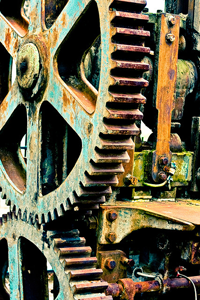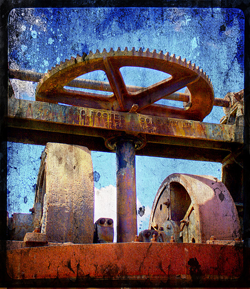In The Zen Teachings of Homeless Kodo, three generations of dharma teachers grapple with the social and technological changes they witnessed in Japan over the course of their respective lifetimes. Kodo Sawaki, the eponymous “Homeless Kodo,” first brought Soto Zen Buddhism out of the monasteries and into the streets during the early 1900s. His dharma heir, Kosho Uchiyama, continued this tradition during the latter half of that century. Now Shohaku Okamura, the title’s translator and last commentator, applies the wisdom of his forebears to our present day.—Ed.
Kodo Sawaki:
After all our efforts, racking our brains as intensely as possible, we have come to a deadlock. Human beings are idiots. We set ourselves up as wise and then do foolish things.
In spite of our scientific advancement, we haven’t yet achieved greatness of character. What’s the reason for this?

Since the dawn of history, human beings have constantly fought. No matter how big a war might be, the root cause of it is our minds, which make us live a cat-and-dog life.
We should not forget that modern scientific culture has developed on the basis of our lowest consciousness.
People always talk about “civilization,” but civilization and culture are nothing but the collective elaboration of illusory desires. No matter how many wrinkles of illusory desire we have in our brains, from the Buddhist point of view, they will never amount to meaningful advancement for human beings. “Advancement” is the talk of the world, but in what direction are we advancing?
Kosho Uchiyama:
When Sawaki Roshi’s term “group stupidity” is directed at our modern civilization, it becomes a criticism of the core of this society. People today are dazzled by advances in science and technology and take human progress to be identical with scientific discovery. This is the fundamental group stupidity of our modern times. We must clearly distinguish between scientific advancement and human progress.
The historian Arnold Toynbee said, “Our modern scientific culture has increased the speed of Adam’s original sin with explosive energy. That is all. And we have never released ourselves from original sin.” Real human advancement would liberate us from our lowest consciousness, which says, “I want to gain everything without working hard. To do that, I’m ready to fight.”
Shohaku Okumura:
Until I became a teenager in the 1960’s, the basic message I received from school and Japanese society in general was that all the suffering and devastation of history were caused by ignorance, and the world was improving because of developments in science and technology. When science reaches its ultimate stage, all our problems will be solved. To achieve this, we need to study hard and gain knowledge.

By the time I was in high school, it became clear that the development of knowledge and technology alone doesn’t make the world a better place, particularly when such development is driven by self-centered desire and competitive mind. In Saddhatissa’s translation of the Sutta Nipata, one of the oldest Buddhist scriptures, someone asks Shakyamuni Buddha, “Whenever there are arguments and quarrels, there are tears and anguish, arrogance and pride, and grudges and insults to go with them. Can you explain how these things come about? Where do they come from?”
I think this question is still relevant. If Buddha returned to this world, he would be surprised at how much it has changed technologically. In his time, people believed that through diligent practice of meditation they could attain supernatural powers, such as the freedom to travel anywhere and see and hear anything, no matter how far away. Today, thanks to airplanes and the internet, even a child can do these things. But Buddha might also be surprised at how little human nature has transformed. He might think our situation in the 21st century is like the story in the Lotus Sutra: While a father was out, his children were playing in the burning house of samsara. When he returned, he called to them to escape the house, but they were so enjoying their toys that they didn’t want to leave. Today these children are playing with nuclear power and all the other dangerous toys in our burning house of samsara.
Subscribe to receive the Winter 2014 issue, out November 3rd, which includes an interview with Shohaku Okumura about his teachers and Zen practice in the modern age.
From The Zen Teachings of Homeless Kodo by Kosho Uchiyama Roshi, with commentary and translation by Shohaku Okumura, edited by Jokei Molly Delight Whitehead. Published with the permission of Wisdom Publications.
Thank you for subscribing to Tricycle! As a nonprofit, we depend on readers like you to keep Buddhist teachings and practices widely available.